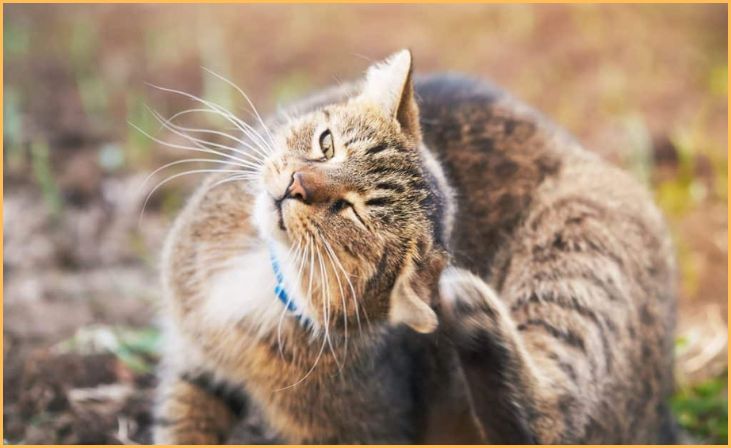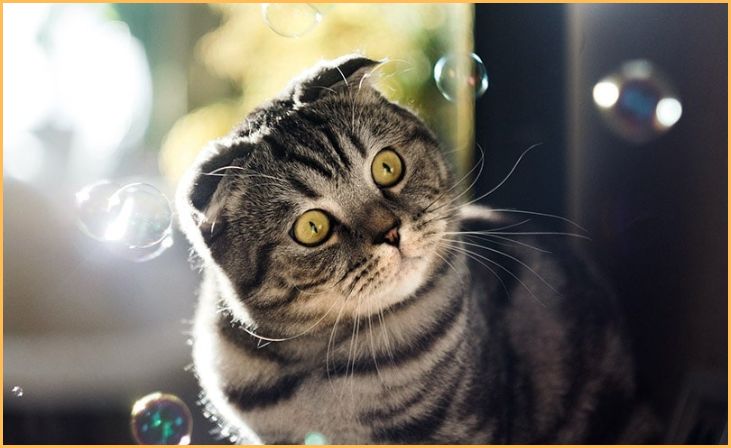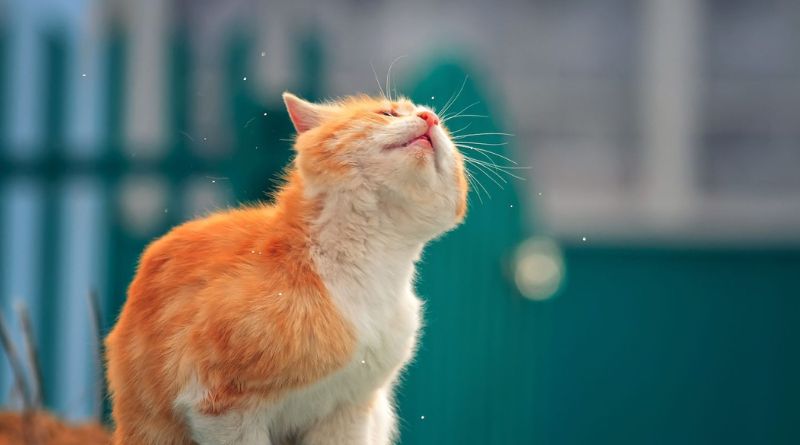Cats, those captivating creatures, possess an intricate repertoire of behaviors that never fail to both fascinate and bewilder us. Among these behaviors, one particularly curious gesture that often captures the attention of cat owners worldwide is the enigmatic head shake. This seemingly simple motion prompts a myriad of questions, leaving cat enthusiasts pondering, “Why do cats shake their heads?”
In the intricate dance of feline communication, where every twitch of a whisker and flick of a tail carries significance, the head shake stands out as a distinctive and intriguing act. Cat owners, ever attuned to their furry companions’ every move, find themselves intrigued by the motivations behind this behavior. What prompts a cat to engage in such a seemingly purposeful action, and what messages might they be conveying through this expressive gesture?
This article aims to unravel the complexities surrounding the head shake, serving as a guiding light for feline enthusiasts eager to understand their beloved pets on a deeper level. By delving into the various facets of this behavior, we seek to provide a comprehensive guide that goes beyond the surface, offering insights that empower cat owners to decode the language of their feline friends.
Why Do Cats Shake Their Heads?
Cats shake their heads for various reasons, and it can be a normal behavior or indicative of an underlying issue. Here are some of the most prevalent reasons cats shake their heads:
Cleaning and Grooming:
Cats are fastidious groomers, spending a significant portion of their waking hours engaged in self-cleaning rituals. Head shaking is a crucial aspect of this grooming routine, serving to dislodge loose fur, dirt, and debris from their fur. It’s an instinctual behavior deeply ingrained in their evolutionary history, promoting cleanliness and maintaining a healthy coat. This meticulous grooming not only keeps their fur clean but also helps distribute natural oils, providing a glossy sheen to their coat. This behavior is an indication of a healthy and well-maintained feline hygiene regimen.
Also Read:- Mysteriously Beautiful Siamese Cats
Ear Cleaning:

Cats employ head shaking as a natural mechanism for ear cleaning. The rhythmic movement aids in dislodging accumulated wax and other materials from the ear canal, promoting optimal ear health. While occasional head shaking is normal, excessive or persistent shaking may signal an underlying issue, such as ear mites or infections. Regular monitoring of your cat’s ear hygiene and seeking veterinary attention if abnormalities are noticed are essential for preventing and addressing potential ear-related health issues.
Playful Behavior:
Head shaking during play is a delightful and common feline behavior. It often accompanies moments of excitement and engagement, especially during interactive play with toys or interactions with fellow feline companions. This playful head shaking is a harmless expression of their energetic and joyful nature, showcasing the dynamic and agile movements that make cats such entertaining and endearing companions.
Discomfort or Irritation:
If a cat is shaking its head accompanied by other signs like frequent ear scratching, it may indicate discomfort or irritation. Ear infections, the presence of foreign objects, or allergies are potential causes. Monitoring for additional cues of distress, such as changes in behavior or appetite, is crucial. Seeking prompt veterinary attention ensures proper diagnosis and treatment, addressing the root cause of the discomfort and promoting your cat’s well-being.
Water Residue:

After exposure to water, whether through bathing or other means, cats may shake their heads vigorously to eliminate residual water trapped in their ears. This behavior is a natural response to the discomfort associated with damp ears and is part of their self-drying mechanism. Ensuring a positive and stress-free bathing experience for your cat helps minimize this reaction.
Also Read:- Best American Cat Breeds
Health Issues:
Persistent or severe head shaking can be a red flag for underlying health issues. It’s a symptom that should prompt immediate attention from a veterinarian. Changes in behavior, appetite, or other concerning signs should be carefully monitored and reported to the veterinarian for a comprehensive assessment. Identifying and addressing potential health issues early is crucial for ensuring the long-term health and well-being of your feline companion. Regular veterinary check-ups contribute to preventive care, helping to catch and manage any health concerns before they escalate.
Conclusion
Welcoming the idiosyncrasies of our beloved feline companions, which encompass behaviors as distinct as the mysterious head shake, serves as a powerful catalyst for deepening the bond between cats and their devoted owners. It is within these peculiarities that the true essence of our connection with these enigmatic creatures emerges.
The act of embracing these quirks transcends the mere acknowledgment of peculiar behaviors; it symbolizes an acknowledgment and acceptance of the unique personalities that define each feline friend. Whether it’s the subtle head shake, an endearing habit that sets one cat apart from another, or any other distinctive behavior, these quirks become the threads that weave the tapestry of a profound and meaningful relationship.
In the case of head shaking, understanding the underlying reasons behind this behavior becomes a cornerstone of responsible pet ownership. It’s a journey that involves deciphering the intricate language of our cats, recognizing when the head shake is a normal part of their grooming routine, and discerning when it may be indicative of an underlying health concern. This depth of understanding is not just an intellectual pursuit but a testament to the genuine care and concern that cat owners harbor for their furry companions.
FAQs
Yes, but use a veterinarian-approved ear cleaner and be gentle to avoid injury.
Not necessarily. Cats shake their heads for various reasons, but persistent shaking warrants a vet visit.







